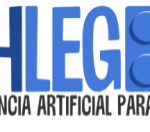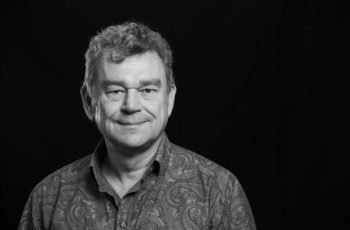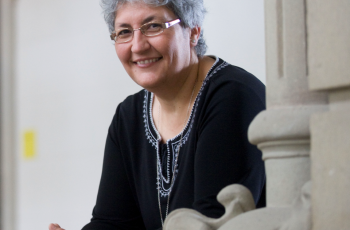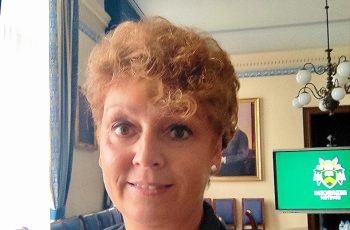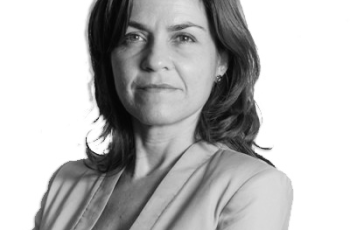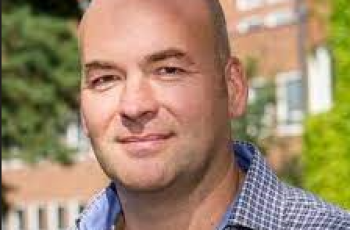In the faces of NeurotechEU series, several people in the NeurotechEU and NeurotechRI alliance are interviewed to learn about their experiences and insights.
Orsolya Jánosy, the Head of the International Relations Office at the University of Debrecen, strives to strengthen international relations and enhance student mobility. She has been involved in planning the NeurotechEU project since its inception and, during the first phase, was the leader of the University of Debrecen in the Research and Education Work Package.

I sincerely believe in the strength of our weak ties
Orsolya Jánosy
Mobility is a significant concern for you. The University of Debrecen hosts a considerable number of international students, which may also spark the interest of Hungarian students in foreign study opportunities.
We proudly accommodate more than 7,200 international students from 120 countries, creating a multicultural environment for Hungarian students. The university is committed to strengthening connections that allow our students to engage in foreign education or professional practice.
Each year, 300-350 of our students travel abroad through Erasmus and other mobility programs. We aim to expand these opportunities, with particular attention to inclusion and digitization. Online courses can play an increasingly vital role, enabling participation for students who cannot engage in long-term studies abroad due to financial or family reasons; still, international experience is essential for them.
Securing financial support for online courses and facilitating short-term, adaptable mobility options would be crucial to fostering inclusion. In the framework of the past Campus Hungary program, for example, students were not only granted the chance to engage in small-group study excursions and field practices, but their dedicated instructors also accompanied them. This initiative proved instrumental in providing mobility opportunities for disadvantaged yet talented students who had never ventured beyond their home country and might have hesitated to embark on such a journey independently.
How does the NeurotechEU project contribute to existing mobility programs?
The Covid-19 pandemic has somewhat restricted face-to-face meetings, making it challenging to launch new programs. Future efforts should focus on supporting collaborations and providing insights into various partner universities’ educational systems and courses, alongside strengthening mobility. Initiatives undertaken in the early stages of the project, such as the “Teaser into Neuroscience” video series, could be further developed, and the University of Debrecen is committed to encouraging this kind of virtual mobility as well, besides the traditional mobility forms.
What makes the University of Debrecen an attractive place to study?
The University of Debrecen is among those scientific institutions within the alliance that offer a wide range of English-language programs, providing diverse opportunities for students. One of our main strengths is interdisciplinarity. We not only participate in the alliance’s work with our high-standard medical programs but can also connect to all eight dimensions, making us attractive from both research and education perspectives.
What does the University of Debrecen consider its most significant achievement within NeurotechEU?
In 2019 we received invitations from different consortiums working on various topics. When Radboud University invited us to join NeurotechEU, our university leadership chose this alliance due to the strength of its partners and the pivotal emphasis on medical and health sciences education. From the beginning, we embarked on this journey with high hopes, recognizing it as an extraordinary opportunity to engage collaboratively with such distinguished partners in health sciences and beyond.
We have introduced innovative mobility concepts that were previously unexplored. Among these, the concept of group study visits has resonated with student demand. Another initiative is the idea of lab visits and consultations spanning just a few days, engaging students and researchers from partner universities. Discussing research directions or results with colleagues of another country can provide a completely new approach to a problem. Additionally, the alliance has launched the NeurotechEU Teaser Package, hoping it will gain more prominence.
In the summer of 2023, the University of Debrecen successfully organized the blended intensive program “Electron Microscopy Sample Preparation”, during which 14 NeurotechEU students spent a week in Debrecen.
Despite significant challenges posed by COVID-19, we continue to believe in the legitimacy and viability of the alliance and that what we couldn’t achieve due to COVID-19 will be realized in the second phase. We hope that the University of Debrecen can contribute to this success.
How did your previous experiences and connections help you in your work within NeurotechEU?
I have been working in international relations at the university for 25 years, familiarizing myself with the needs and challenges of students, whether Hungarian or international. We adopt a student-centric approach, responding to real demands. We can represent this mindset within the alliance, making it easier to involve talented students from economically disadvantaged regions and flexibly adapt to changes that may arise during the project.
I prioritize mobility in terms of building both professional and personal relationships. I sincerely believe in the ‘strength of weak ties’, those subtle yet influential personal connections that can infuse credibility into the causes we represent. It is my conviction that significant accomplishments are often driven by the intricate web of small personal networks, our so-called ‘weak ties.’
I trust that the professional credibility of our colleagues, along with all the tasks accomplished and contributions made by our researchers and students to the project, can serve as a reference, helping the University of Debrecen navigate through these challenging times.
By: Krisztina Csiba from the University of Debrecen
